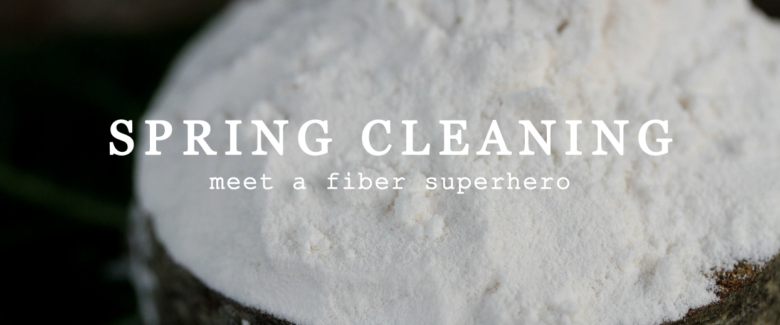It’s almost spring and with spring comes spring cleaning… of your liver and gut that is. There is a great source of fiber I want to introduce you to today to help with (spring) cleaning out your intestines. It’s called acacia powder and today’s post is about the benefits of adding this to your diet or using it as a gut detox.
Sing with me…I bless the rains down in Africa
Gonna take some time to do the things we never had (ooh, ooh)
A tree in Africa is home to the sap that acacia powder or acacia gum, comes from. Like many fiber sources, acacia helps to regulate bowel function, lower cholesterol, and feed the microbiome.
It’s a regulator
Adding fiber to your diet helps to add bulk and push the contents through the GI tract more efficiently. It’s like a broom cleaning up the debris in the corners of your intestines. Constipation causes the contents of the bowel to sit in there so long that you start reabsorbing the toxins you are trying to get rid of. That’s never a good thing. I once saw a young girl who only had a bowel movement no more than once a week. Her skin had a green hue to it and once we cleared up her constipation she turned rosy again and felt a whole lot better as you can imagine.
It’s a cholesterol transporter
If you have ever done a Boston Heart cholesterol particle profile with me you would know if you were an over-producer or over-absorber of cholesterol. Acacia fiber can help with both. Soluble fibers have been shown to increase the rate that bile is produced therefore reducing total cholesterol levels and LDL cholesterol levels in the blood. Many people think of oatmeal as a go-to to lower cholesterol levels but for some people, the high carbohydrate count causes a blood sugar imbalance which can also increase cholesterol levels. Acacia fiber has a 1:1 carbohydrate to fiber ratio and is only needed in small quantities, which means there is a negligible effect on blood sugar levels.
It’s food for your friends
My favorite benefit to this fabulous fiber is its ability to support the microbiome also known as the good bacteria in your gut. It’s considered a prebiotic because it feeds the good bacteria that we want to keep happy so that it helps us digest our food, boost our immune system and help make the hormones that make us happy humans.
It is incredibly easy to take. Tastes like practically nothing at all and can be added to drinks, smoothies, soups, dressings, or the like. Start small, with 1/2 teaspoon one to two times a day, and work your way up. Look for a source that is organic and GMO-free like this one.
Be fiber friendly!
Dr. Stacey



Thanks, Stacey. I’m sure this will be useful.
My lower back is slowly improving. Seeing Dr. William Ingle.
He is the best in Ludington.
Will pass on to Donna. She is having issues with her bladder.
Interstitial cystitus??? Waiting on UA.
Best regards,
Don Emch
I’m so glad you found someone local. Send my regards and speedy healing to Donna.